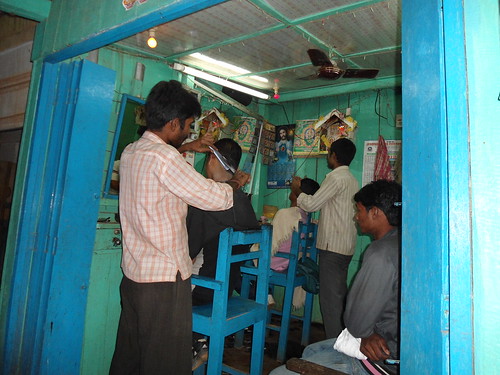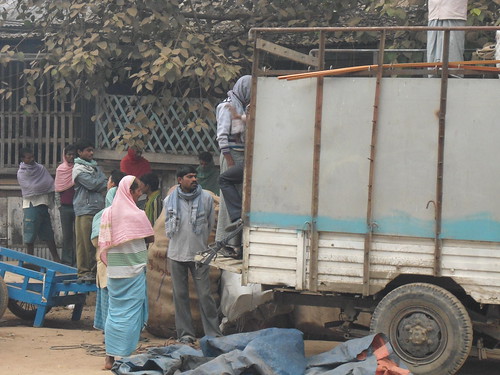By Syed Ahmed, for TwoCircles.net,
Dimapur, Nagaland: A verification drive to identify Indian Muslims from the illegal immigrants from Bangladesh was carried out in Dimapur. The verification drive was undertaken by the Public Action Committee (PAC) constituted by Naga Council Dimapur. The drive continued till March 25.
Officials made it clear that the drive is being conducted so that the Indian citizens are not victimized for the acts done by the Bangladeshi immigrants. Co-ordinator of PAC Joel Nillo said in a press release that it has become very important for the state government to register all the Muslim settlers of Dimapur district. The drive is purely in public interest, sensing the need of Dimapur district to employ a mechanism whereby Naga customary rights are invoked to check the menace of rape and anti-social activities committed by those who have no respect for the values and culture of Naga, Joel added.
Joel also said that PAC has given a number of papers and documents which local authorities and landowners/landlords are required to furnish before the drive closes on March 25. Any appeal after March 25 will not be entertained.

PAC warned that if any individual or organization posed obstructions during the verification drive, the offender would be seen as anti-Naga and the issue will be dealt with as per Naga customary laws. PAC informed house-owners and landlords to sign an undertaking and said that until that is done, their tenants would not be registered and that PAC should not be responsible for any necessary future course of actions. Further, the committee asked all governmental agencies to take outmost care to ensure that documentation is avoided at all cost with respect to persons whose origins are prone to be suspected and who may later claim citizenship based on the issued documents.
The verification drive was carried out following the inhuman act of rape committed against a married Naga woman by 5 Muslim immigrants in February 6, 2012 at East Block, Burma Camp in Dimapur.
Muslim Council, Dimapur also takes steps
A body of Muslims in Dimapur, Muslim Council, Dimapur (MCD) while strongly condemning the heinous crime of gang-rape committed by the 5 immigrant Muslims, has demanded capital punishment to be meted out to the rapists for their crime. MCD also convened an emergency general meeting of the community including all the masjid committees, idgah committees and the Muslim jamats within the Dimapur Municipal Council area on February 12 at the Jame Masjid complex in Dimapur and resolved to undertake a registration drive of all genuine Muslim habitants in the Dimapur municipality to check such heinous crimes often committed by immigrant Muslims in the future.
The council expressed in a press-note that “the bona-fide Muslim community is helpless, displeased and very much upset at the way the temporary migrants and floating populations not only do not care for the prestige and honor of the community but also do not respect and regard the sentiments of the local people, with whom the bona-fide Muslim community has been living for over 100 years.”
The council directed all the bona-fide Muslims staying in Dimapur municipality to get themselves registered in the Jame Masjid or Panjagana (temporary prayer houses) in their respective ward or colony by producing their native Panchayat Certificates and also GB certificate form their colony in Dimapur. The council meeting resolved that the council will regulate registration or establishment of any prayer-house within Dimapur.
The council appealed to all landowners not to allow establishment of any masjids without the approval of the council and also requested the land-lords to keep a verified copy of documents of his/her particulars, profession and photo before renting a room/house to any Muslim tenant within Dimapur municipal area jurisdiction. The council also decided to check the activities of Muslim quacks (kabirajs) who give amulets (tabiz) and perform other magic crafts and cheat innocent locals, and also appealed to the local populations not to entertain such persons.
The Muslim Council also demanded the state government to formulate laws to streamline the flow of migrants of all communities into the state with special reference to the Muslim temporary migrants.
Muslims in Nagaland
Muslims found their way to this secluded hilly state from the neighbouring states of Assam, U.P., Bihar and Bangladesh in search of livelihood who in course of time settled down. Presence of sizable number of Muslims in Nagaland probably dates back from the late 19th century. It is said that the Muslim who established the Jama Masjid at Dimapur, the oldest masjid in Nagaland, came to Nagaland from Peshawar around 1895 during undivided India. The masjid was established on his own family land. After his death the masjid was registered at the instance of its Mutawalli late Hussain Khan, the fourth eldest son of Hazi Maligul Khan, in December 1959 as Wakf Estate No. 40 vide District No. ABW/l-D- 59 under the Assam Board of Wakf. Most of these early Muslims are settled in Dimapur Town as well as at Naharbari and Purana Bazaar Villages. Many of them were state government employees.
Muslims, locally known as Mia or Mian, are sparsely distributed in the urban areas of Dimapur, Kohima, Makokchung and Jhalukie districts. According to the 2001 census the population of Muslims in Nagaland has reached 35,005, as against the state’s population of 1,990,036. Muslims have access to many of the business establishments across the state. In Dimapur Muslims control businesses that deal with second-hand clothes, bamboo, thatch, chicken, fish and vegetables. Many of the Muslims also run pan/gumti shops, grocery/ration shops, meat shops, engage in plying handcarts and rickshaws, catering/hotel, agricultural works, construction works, and work as manual labourers, etc.
Foreigners’ issue
The population of Muslims in the state increased after 1947 with the migration of large number of Muslims from Cachar, Karimganj districts of Assam, Sylhet district of Bangladesh, etc. In the recent years there has been huge influx of Muslims from Bangladesh which has led to public outcry and a great concern for the state government.

According to M. Amarjeet Singh (in Illegal immigration into North-East India: A case of Nagaland, 2009), “Illegal immigration has been taking place in Nagaland, especially in areas bordering Assam, since the early 1970s or even earlier, but it has picked up since the 1980s. While immigration in Assam and Tripura are comparatively well-documented, it has not been done in Nagaland. Very recently, the issue has generated some attention among a section of the Naga society, who perceives it as a potential threat to their tribal identity. Like elsewhere, estimates about the total population of illegal immigrants in Nagaland are not forthcoming and these estimates vary from 1-3 lakh.”
“Since Nagaland is not connected either by land or water with Bangladesh, immigrants have been coming via Assam after obtaining fraudulent documents, such as ration card, voter identity card and driving licence, from places like Karimganj, Nagaon, Golaghat and Sibsagar in Assam; and then settled along the foothills of Assam-Nagaland border as well as areas around Dimapur. Since the immigrants possessed these documents, the local police could do nothing despite suspecting their dubious nationality. Further, the cosmopolitan nature of Dimapur, the commercial hub of Nagaland, makes their identification and detection a highly arduous task,” Amarjeet Singh added.
Prospects for better employment and the dislike of the locals for manual labour have significantly contributed to the influx of immigrants. Local contractors and businessmen also prefer to engage immigrants as they provide cheap and skilled labour.
Many of the immigrants married the local girls. As a result of rising intermarriage, a community called ‘Sumias’ has reportedly emerged in the state. “The Muslim immigrants settle along the border areas and are engaged in agricultural activities. They are employed in the paddy fields and after staying in the areas for a few years get married to local Sumi girls. And when their offspring are born, they name them after the Sumi tribe,” Amarjeet explains.
According to Naga Students’ Federation (NSF), an influential body which has been taking up the foreigners’ issue, there are two categories of non-Nagas in Nagaland. The first category constitutes the illegal immigrants (foreign nationals) like the Bangladeshis, Bhutanese, Nepalese (except those residing in Naga Hill District prior to 1940), etc. The second group comprises of non-Nagas of Indian origin (Indian citizens) who are under the purview of Inner Line Regulation. Indian citizens from other states are not allowed entry to Nagaland without obtaining an ‘Inner-line permit’ except in Dimapur town.

